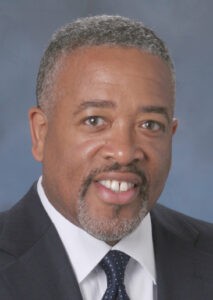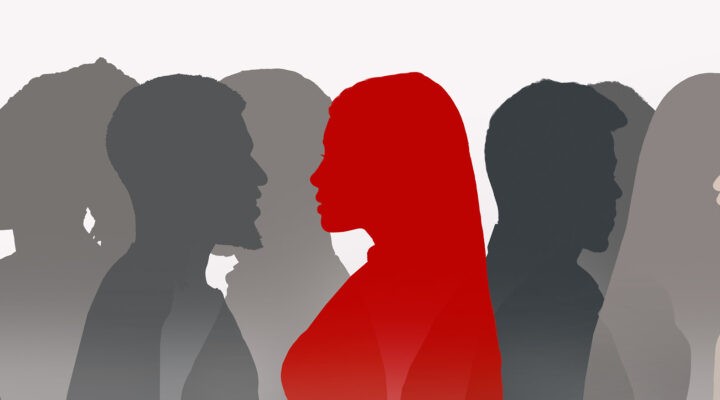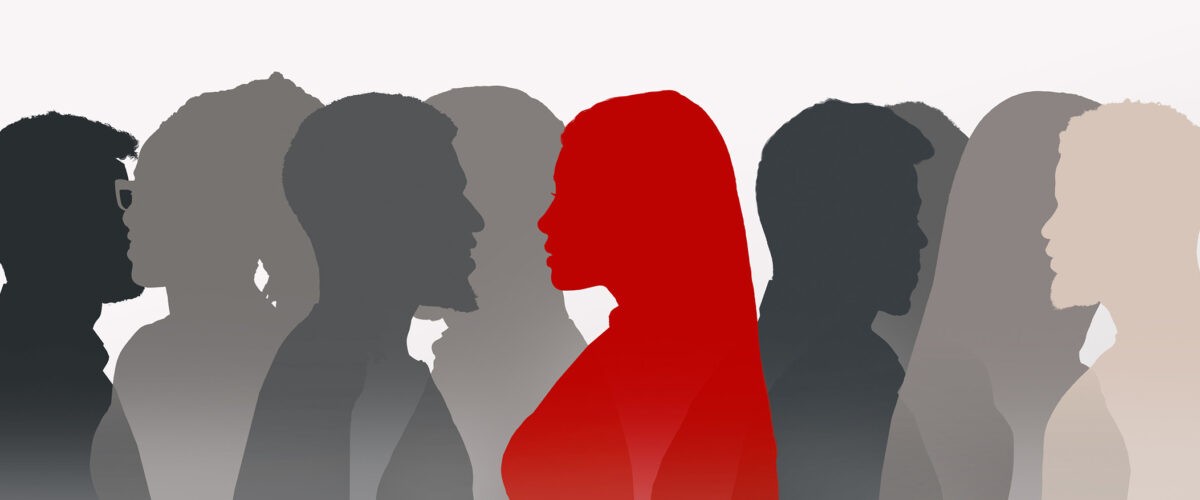Have you ever encountered a situation in which you were made to feel “less than” by someone?
The incident may have occurred on a subway, in a restaurant, in the workplace or even at a worship service. The place where the offense occurred is not nearly as significant as the fact that another human being, whether intentionally or not, contributed to a situation that left you feeling devalued, demoralized, disrespected or denigrated.
The situation becomes even more concerning when you realize you were undeservingly victimized through no fault of your own. You are now burdened with the unenviable task of sorting through and making sense of what motivated the person or whether you were somehow in their mind deserving of the slight, while the offender invariably moves on often without even the slightest inkling of how their words or behaviors affected you.

Stanton Lawrence
It is interesting to note how an extended accumulation of such experiences might influence our emotional and mental perspective over time. Does the term Post-Traumatic Stress Disorder ring a bell? This is especially the case if the person on the receiving end belongs to a historically oppressed population, a group whose long record of persecution and marginalization is widely known and well documented. I suspect the long-term psychological harm incurred by those who are the repeated subjects of such treatment may not be effectively studied or understood until sometime far in the future.
Efforts to illuminate the atrocity with special emphasis on amplifying our innocence often are met with indifference, dismissal or even scorn. Those on the receiving end are frequently labeled as whiners, weaklings or sympathy seekers. Simply put, and to restate an often-heard phrase, who cares?
Such encounters have been and continue to be persistent themes in the personal lives of so many. More and more, it becomes obvious that humanity is hurtling toward times in which consideration for and of others is becoming an increasingly rare commodity. Care for your fellowman at your own peril while adopting a position that reflects our national mission: keeping oneself first.
Lest the reader draw the solitary conclusion that the focus of this commentary is racial oppression, that is only one aspect of what we are attempting to clarify here. Intolerance against those with disabilities of numerous types, gender and sexual orientation, the aged/infirm and national origin or ethnicity are quite rampant in our society and appear to be precariously on the upswing. Persons who are perceived as “different” and who also harbor lofty personal, educational or professional aspirations clearly have an elevated predisposition toward being on the receiving end of these encounters.
A Latinx individual who is taking the proper measures to position himself or herself to be elevated at the first available opportunity will certainly be labeled as arrogant, while someone from the majority culture will be viewed as confident and well-prepared. An African American with the proper credentials and whose experiences elevate their chances of being promoted is cocky and deserving of “being watched” if they are to be viewed at all. An individual of the Islamic faith must certainly be monitored closely because he or she or a close associate of theirs is more than likely aspiring to plot an act of violent aggression.
“What is it about our society that causes us to harbor wariness, if not hatred, toward our fellow human beings who are guilty of nothing more than being born into another race or whose national origin differs from our own?”
What is it about our society that causes us to harbor wariness, if not hatred, toward our fellow human beings who are guilty of nothing more than being born into another race or whose national origin differs from our own? Why do we often feel someone whose faith or customs are different than our own cannot be a friend or associate? Why do we erect these superfluous barriers between our common oneness as human beings whose needs vary little? Do we believe we are better, stronger or more deserving than others when we allow labels of our own choosing to determine their worthiness?
These questions and many more are worthy of a prolonged and well-crafted conversation if we are to become the people we have the potential to be. If we are undisturbed by or even indifferent toward the deliberate acts of unkindness (and violence) we see inflicted upon other innocent human beings, we need to do some intrusive soul searching.
None of us determined prior to our entry onto the world stage what race we would be or where on the socioeconomic spectrum we would land. As predetermined as many believe their lives to have been, nothing could be further from the truth.
We do, however, have considerable control over how decently we behave toward others. Make the right choice, because it counts more than you will ever know. The examples of Christ’s behavior toward those who others despised and avoided are prominent in the Bible. They should serve as examples for us all.
A few years ago, my heart warmed up to serving the needs of our fellowmen who are incarcerated. I joined a nationally established organization and participated in their orientation and training programs. Afterward, I underwent the required training necessary to officially access the prisons to work with the men who were “paying their debts to society.” Because I am a professional who works as an educator daily, many of our church members and others were curious about why such an unusual choice appealed to me.
“When I became an elementary school principal many years ago, I requested an assignment in the most challenged community in a large urban school district.”
When I was a young teacher many years ago, I had gotten into a physical dispute with another man that ended only after law enforcement arrived on the scene. Although I was arrested, I breathed a sigh of relief when the charges were dropped the next morning. The initial charge was a serious felony, which could have easily led to incarceration.
I have always given God the glory for how things turned out for me. I realized how many others in the same situation were not as blessed as I was and ended up serving time. That blessing was further elevated when the circumstances did not adversely affect my career.
When I became an elementary school principal many years ago, I requested an assignment in the most challenged community in a large urban school district. Again, I believed this to be the community God had called me to serve. It was a no-brainer for me, although it puzzled many around me. Later, when I became a high school principal and a school superintendent, the same thought process prevailed in me. Christ suffered and died upon the Cross so that our sins were forgiven, and we would have access to salvation and eternal life. My choices of school assignments always were viewed internally and spiritually as “my own crosses to bear.” And as often is the case with tough urban settings, I have numerous personal scars which I count it an honor to wear.
I learned firsthand the true meaning of turning the other cheek, and I thank God daily for the opportunities to serve those with the greatest need, remembering Matthew 25:36 — “I was in prison, and ye came unto me.”
Stanton Eugene Lawrence is a career educator, husband and father of six who currently serves as assistant superintendent of administration in the Victoria Independent School District in Texas. While prison ministry and supporting the education of struggling students are two of his passions, he also enjoys reading, writing and watching historical documentaries. Lawrence completed a bachelor at arts degree in English at Prairie View A&M University and master of education and doctor of education degrees at the University of Texas at Austin.
Related articles:
I didn’t have to be here and other existential truths | Opinion by Brett Younger
At this conference, religious minorities told each other’s stories of persecution
Reading good literature can develop skills in empathy and compassion, professor says


